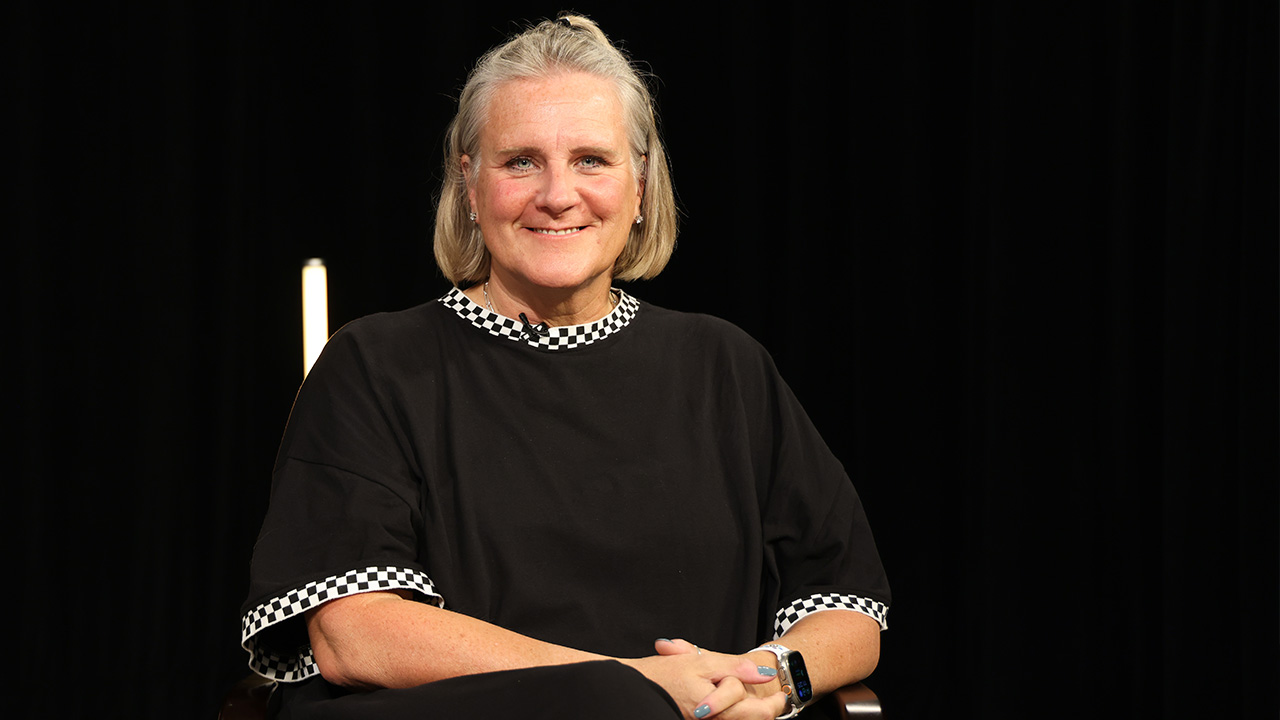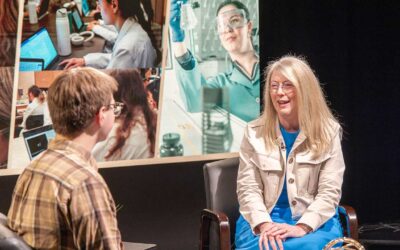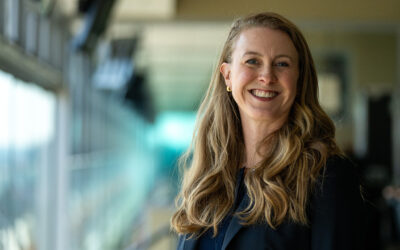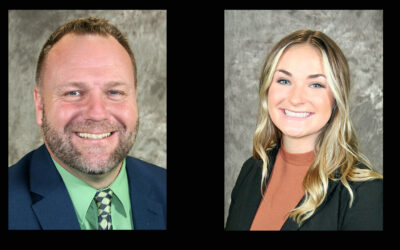Season 1, Episode 9
On this episode of Living the Pharm Life, Dr. Kara Weatherman discusses nuclear pharmacy—a lesser-known pharmaceutical sector that has endless potential in saving and improving lives. The Purdue College of Pharmacy is home to the oldest and largest radiopharmaceutical program in the country—and that hasn’t happened by accident.
Listen in as Dr. Weatherman, the current driving force behind Purdue’s radiopharmaceuticals programs, takes you on a journey of nuclear pharmacy’s evolution, the growth and history of Purdue’s storied program, and what the future holds for this extremely exciting new area of diagnostics and therapeutics.
Indianapolis is an ever-growing hub of radiopharmaceutical research and manufacturing. With the launch of Purdue University in Indianapolis in July 2024, the natural progression is to expand Purdue’s presence in the radiopharmaceutical space with new radiopharmaceuticals manufacturing programs in Indianapolis.
You won’t want to miss this exciting episode!
Read Transcript
Isabella Tobin:
You are listening to Living the Pharm Life, the official podcast of Purdue University’s College of Pharmacy. I’m your host, Isabella Tobin, a PharmD candidate with a passion for telling the stories of our college’s phenomenal and loyal students, faculty, staff, alumni, and friends, who persistently pursue excellence in all they do. Dr. Weatherman is a renowned scientist in nuclear pharmacy and radiopharmaceuticals, and a faculty member in the Purdue College of Pharmacy.
She is also my mentor. We’ve known each other for many years, and I currently assist her in the research project. Given my own passion for nuclear pharmacy, I cannot wait to dive into this discussion about the exciting things on the horizon in this space. I’m very excited to have you here today for this episode.
Dr. Weatherman:
Thank you very much for letting me come and share.
Isabella Tobin:
Yeah, of course. To start off this sharing, can you tell me a little bit about yourself? How did you get into nuclear pharmacy, and everything at Purdue?
Dr. Weatherman:
Sure. I am a 1994 graduate of Purdue University, and was in the pharmacy track, and honestly had no idea what nuclear was. I’d never heard of it, I’d never seen anything about it. My mom was a pharmacist, which is kind of how I ended up in pharmacy school. When I was here, I took an intro course on nuclear pharmacy and diagnostic imaging, and it seemed very interesting to me.
I started in the curriculum here, went through the curriculum. I did have an opportunity to do a summer internship, and that really was what solidified it for me. I tell the students all the time that I had my epiphany, luckily very early in my pharmacy school career. I just loved it. It was very different and unique, and so I really had no other choices in my mind of what I wanted to do when I graduated.
Isabella Tobin:
Yeah. Well, I know you and I both know what nuclear pharmacy is. For any of our audience that isn’t familiar, could you tell us more about what nuclear pharmacy is?
Dr. Weatherman:
Sure. There is a subspecialty of radiology called nuclear medicine. In nuclear medicine, we take a drug product, a drug molecule, and it actually carries a radioactive isotope with it. Once that’s injected in the body, the drug molecule behaves the way it normally would in the body. The fact that it has this isotope that gives off radiation, we can track it and actually see how it moves through the body, how it follows the physiologic process, but the issue with radioactivity is it goes away.
It has a distinct half-life, and when we want to put it in people we’d like to have very short half-lives, but that does create a problem when you want to make the drug. A nuclear pharmacist is a pharmacist. We dispense prescription drug products. It’s just those prescription drugs have a radioactive isotope on it. A nuclear pharmacist will take a radioactive source, we’ll do kit preparation or chemistry to actually radio label it, and then we prepare it as a unit dose for patient administration.
Isabella Tobin:
All right, thank you so much for that very detailed explanation. Diving more into the specifics of nuclear pharmacy, it’s a pretty exciting time in nuclear pharmacy. You do a lot of research on campus, as I very well know. Can you tell us more about why it’s such an exciting time to be going into nuclear pharmacy?
Dr. Weatherman:
Sure. Nuclear medicine and nuclear pharmacy have been around since, well, nuclear medicine since the ’40s or so, and nuclear pharmacy really started in the early 1970s, so it’s actually been a very longstanding career option. What’s really exciting about it today is an area we call theranostics. Theranostics is where we take a drug molecule that’s very specifically targeted to a particular component of a cell, most of the time, a tumor.
Now, we take our radioactivity, attach it to that. When we inject it into a patient, we can first see with a diagnostic, or a low-energy type of radiopharmaceutical, we can see where the tumor is throughout the patient’s body. Then once we’ve identified that, we basically take that same molecule or something very, very similar to it, and we add a different isotope that actually has cell-killing capabilities. What we’ve created is a targeted cell-killing molecule, essentially.
This drug product will take it to those exact same cells, and the radiation will sit there and actually kill off the cells. Unlike chemo, for example, where we give a drug that goes all over the body, and it works at tumor cells, but we also have other cells that are impacted by it that I always want it to be impacted, with these, we get a much better targeted focus of where we want that cell kill to be.
It is a hugely expanding market, thanks in part mostly to the fact that our drug molecules, we can do a much better job of targeting different parts of a cell that we weren’t able to do 15 years ago. It really is an exploding area in our field.
Isabella Tobin:
Yeah, and it’s a great place to be here at Purdue as well. We are one of five places that has a nuclear certificate program?
Dr. Weatherman:
Right, right. When you graduate from pharmacy school, you obviously have to be a pharmacist to be a nuclear pharmacist, but you also have to have a very specific training that is set forth by the Nuclear Regulatory Commission, which is all about how you handle radioactivity safely. The curriculum that we teach here kind of combines what you need to do as a nuclear pharmacist with the specific requirements of the nuclear training.
That’s basically, as you walk out the door into our field, you already have that 200 hours of dedicated training, which is a requirement. You’re right, there’s only five schools that do this. It’s a very, very unique little market that we have. Well, that leads to an interesting question, though. How in the world did you get involved in this? Usually the word nuclear for a lot of people is like, “Okay,” but you’re very engaged in it.
Isabella Tobin:
See, for me, it was the opposite. During my senior year of high school, I had to write a ten-page paper for my anatomy course on my future profession. I knew I wanted to do pharmacy by that point, and I said, “I’m going to write this paper on pharmacy.” My anatomy teacher said, “No, you’re not.” I said, “What do you mean?” She said, “That’s not specific enough.” I said, “Well, how can pharmacy be any more specific? You’ve got CVS, you’ve got hospital, maybe you become a professor, but that doesn’t seem likely.”
I was like, “It’s CVS all the way.” I’m from Rhode Island. CVS is headquartered there in Rhode Island, so CVS all the way. My teacher was like, “There are different types of pharmacy.” I asked her what the different types were, and she couldn’t answer my question. I went home, and I googled it, and I’m going down this list and I’m like, “That was a lot of things,” and then nuclear pharmacy was on the list. I was kind of obsessed with radiation when we learned about it in my chemistry class sophomore year of high school.
I said, “Well, at least this will be interesting to write a ten-page paper on.” It’s like, “Nobody else is going to write a ten-page paper on radioactive drugs. I can do that.” That’s when I found the Purdue University website. It was one of those things where it piqued my interest because I just thought it was the coolest thing. When I started learning about radioactivity, I was like, “This is awesome.”
Dr. Weatherman:
Yeah. I was very much the same way, although we always joke about in my family, because my coming home, my parents were kind of like, “Hmm, didn’t you touch radioactivity today?” It’s like, “Yes, yes, I touched a lot of radioactivity today,” but yeah, I don’t know if I could write a ten-page paper on it either, so kudos to you. I think one of the things that’s really a true take home, which is very exciting for you guys now, the students that are getting into this now, is there are just so many different options.
I will tell you always, when you come to Purdue as a pharmacy student, I think one of the really selling points of Purdue as an academic institution in the area of pharmacy is we give you the opportunity to see a lot of things that you can’t see at other colleges of pharmacy. It doesn’t mean you can’t go into them long term, but at least here, you get to experience it and learn a little bit about it. Nuclear is one of those, obviously, with only four other places that do this.
In the last probably 10 years, even in the nuclear space, the number of different career paths that you can now take, so you can dispense, if you’re interested in manufacturing and FDA, you can go the route of radiopharmaceutical manufacturing, regulatory compliance is huge no matter what you do. There’s a lot of folks that really like more of the industrial focus of regulatory, and FDA, and clinical trials, and things like that.
We’re expanding into maybe seeing a lot more of our pharmacists go into a clinical site, where they’re actually face-to-face with patients. For the longest time, nuclear was very much a separate lab kind of environment, but we see in the future where pharmacists are going to be more engaged with these theranostics patients, ,and following their levels and working with physicians to take care of these patients who are receiving these radioactive drugs.
One of my colleagues in the medicine space said, this is probably the most exciting time for nuclear medicine that he’s seen in his 40-plus years of practice. I’d say the same thing about nuclear pharmacy practice. I’ve been in the field for 30 years plus. I think this is just unprecedented in what we’ve ever seen. It’s very exciting, and I think that’s part of my job is to make sure that we give our students the opportunity to see and experience that, and hopefully they’ll love nuclear as much as I did.
Now, I will tell you, I never thought I’d be a teacher. That was different, but definitely, I think nuclear is a very exciting career path.
Isabella Tobin:
Could you share more about the history of the program here at Purdue?
Dr. Weatherman:
Yeah, so this really went back, if you really want to go back, John Christian, who was a member of our bionucleonics department, he was one of the first folks that was really interested in this idea called tracer methodology, which is where we’re tracing a physiologic process. He did a lot of research in that area. Then one of his graduate students was Dr. Stan Shaw, who was my mentor. He came here and got his PhD, and came back and started teaching. He was a pharmacist originally who kind of got into this.
As nuclear was kind of morphing and modifying a little bit, he recognized that pharmacists could play a role, he and obviously others in the field, but he was really what we would call one of our major pioneers in terms of nuclear pharmacy as a practice. He spent his entire career at Purdue, and was very well known both nationally and internationally. We just kind of morphed into this place of trying to be a leader in this particular area.
Isabella Tobin:
Yeah. Purdue as a whole, very much a leader. We’ve just opened Purdue University in Indianapolis. How do you see nuclear pharmacy kind of working in Indianapolis with this new location?
Dr. Weatherman:
Yeah, so between nuclear pharmacy, so pharmacy is the dispensing side, but one of the other areas that we focus on and we’re really increasing our focus on is the manufacturing side. Purdue has an existing manufacturing focus with our industrial pharmacy groups, but manufacturing a radiopharmaceutical is going to be different than what you would see at Lilly, and AbbVie, and places like that, because of the radioactivity. While we follow the same rules, we still have to account for that.
If you think it’s a very small model of folks that actually know nuclear pharmacy, it’s even smaller in the manufacturing world. As it turns out, though, Indianapolis, just because of its geographic location, they’ve got a great FedEx hub. We have about 15 different radiopharmaceutical manufacturing companies that are setting up shop in the Indianapolis area, primarily because they can get their drugs to about 70 to 80% of the country in 10 hours or less.
That has really shifted the game here in the state. Now, we have our pharmacy side who are going to dispense it, but we’re really focusing on the group of people who are going to be making it. Purdue really has the potential to play a huge role in the pipeline of folks going to work at these facilities. It’s not just pharmacy, it’s pharmacy, it’s manufacturing, it’s regulatory, it’s health physics, it’s engineering. We really, because of some of the connections we’ve had with the folks that are working in these industry sites, we have created a little consortium of these radiopharmaceutical manufacturers.
Because they’re in Indy, it’s logical then that we would try to set something up in Indianapolis. The nuclear group, we’re creating a radiopharmaceutical manufacturing training center in Indianapolis, where we will have places that not only our students could go to train, but also folks at these facilities could come back and do hands-on training, and/or use the facility for more extensive training if a company was interested in that.
Then we are working on master’s degrees in different areas, specifically our first one is going to be in radiopharmaceutical manufacturing, and that is most likely going to be based at the Indianapolis campus because we are going to most likely be using some of those facilities as co-ops, and internship sites, and things like that. I would guess that some of our West Lafayette students will also be going down to use the facilities down there once they’re up and running.
Isabella Tobin:
I was just about to ask how this would impact our West Lafayette students. I got to know how it’s going to… You know I got to get in on this.
Dr. Weatherman:
I think it’s really clever in the fact that we have obviously, now, a transport system that we’ll be able to get down there and utilize these. I do think we fit very nicely in the two campus model. Again, the really key part of us being in Indianapolis is that’s where most of those folks are going to be when they’re actually doing the manufacturing. They’re not going to be able to take time off to come do a six-week class somewhere. I think we’re really setting ourselves up to have a lot more engagement and interaction with these companies.
Isabella Tobin:
Yeah, that’s fantastic. Thank you so much for sharing. I have one final question for you.
Dr. Weatherman:
Okay.
Isabella Tobin:
I’m not sure if you’re familiar, but on every episode, I like to ask our guests kind of a random question.
My random question for you is what’s the most random fact you know?
Dr. Weatherman:
Because I am a nuclear pharmacist by trade, and I do like the fact that I teach, I can’t give you an actual number, but one of the benefits of having our program for as long as we have, and we’re quite a large program compared to some of our other colleagues, so we have a significant number of practitioners in the nuclear space that are basically Purdue graduates or Purdue affiliated from training. That’s actually moved over into the industrial space as well.
Some people might not find this a fun fact, but it is a surprising number of people who know who you are if you are a Purdue graduate. It is very interesting to see the dynamics of how our students are able to go in and actually engage with these folks. Really, literally for most of them, they’re like, “Oh, you’re a Purdue student, that’s amazing,” and that starts the conversation. If there’s a perfect example of how we are a small community, where being affiliated with Purdue particularly really benefits you in the long run, we are probably one of the golden examples of that.
I guess my fun fact is there is a more than average number of folks in our profession that have a Purdue tie, which is really going to be helpful for our students as they go out and do this.
Isabella Tobin:
It was very evident to me when we were in Orlando for APHA 2024 back in March. Every single person I went up to in the nuclear field, I was like, “Hi, I am Isabella. I’m from Purdue.” They’re like, “Oh, you’re one of Kara’s students.”
Dr. Weatherman:
I don’t know if that’s always a good thing, but yes, a lot of people know me.
Isabella Tobin:
Hey, you’re famous in the nuclear space. I’m famous by association.
Dr. Weatherman:
Well, and I always tell people when they ask me, I am a huge poster child for selling nuclear to anybody that wants to ask, but anybody that would like to ask, we’re very open to sharing. Again, our tie-in to the fact that we have so many of our graduates that are out in the space, really all you need to go in and ask when you get into one of these facilities and say, “Would I like to tour? Can I see what you’re doing?”
The nuclear pharmacy group is very excited about getting more people involved in our profession. It’s a very close-knit community that you probably don’t see in a lot of other areas of practice.
Isabella Tobin:
Yeah. Well, thank you so much for sharing. I have had an amazing time having you here today. Thank you so much for being here on the podcast.
Dr. Weatherman:
Well, thank you for having me.




